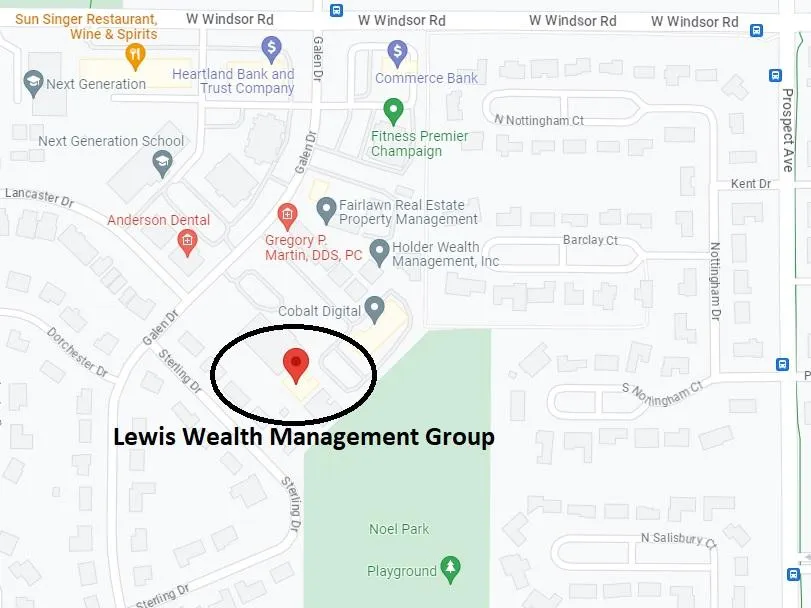
Should you have a Healthcare Bucket in Your Retirement Plan
As a seasoned financial advisor with a core focus on retirement planning, I have guided countless individuals into their retirement journey. Retirement, a phase synonymous with relaxation and freedom, is a double-edged sword. While it offers an escape from the daily grind, it also brings forth a myriad of financial challenges, chiefly among them – healthcare expenses.
The Perils of Rising Healthcare Costs
One of the undeniable truths about healthcare is its ever-escalating costs. Historically, healthcare expenses have surged, often outstripping standard inflation rates. This trend poses a significant risk to retirees, particularly those without a strategic financial blueprint.
So, why does healthcare cost so much more every year? Several factors contribute:
Advanced Medical Technology: As medicine progresses, treatments become more sophisticated – and expensive. New equipment, advanced surgeries, and groundbreaking medications come with hefty price tags.
Aging Population: As baby boomers age, the demand for medical services rises, leading to higher costs.
Chronic Illness: The rise in chronic diseases like diabetes and heart conditions further strain the healthcare system.
Given these realities, not having a dedicated healthcare bucket in your retirement portfolio could potentially deplete your savings quicker than anticipated. Such a scenario can hinder your retirement dreams, pushing luxury cruises and dream vacations to the back burner. A healthcare bucket acts as a financial cushion against these escalating costs, securing your broader retirement aspirations [1].
Strategic Budgeting for Healthcare
Financial empowerment stems from informed decision-making. A report by Fidelity Investments sheds light on a startling fact – retirees might need to allocate upwards of $315,000 for healthcare during their retirement years. It's a staggering sum, emphasizing the essence of structured financial planning.
A healthcare bucket isn't just about having money set aside; it's about strategic allocation. It involves:
Forecasting: Estimating potential healthcare expenses based on current health, family medical history, and lifestyle.
Regular Reviews: As healthcare costs and personal health needs evolve, revisiting and adjusting the healthcare bucket is paramount.
Exploring Health Insurance: Investing in comprehensive health insurance can offset some costs, making the healthcare bucket stretch further.
By maintaining a separate healthcare bucket, retirees can confidently navigate their healthcare journey without depleting other assets prematurely [2].
The Dual Advantage: Behavioral and Financial
Beyond the evident financial benefits, there's a psychological boon to having a healthcare bucket. Humans inherently prefer compartmentalization. By mentally segregating healthcare expenses from overall savings, retirees achieve clarity, promoting better fiscal management.
This delineation ensures that retirees can cater to their healthcare necessities without jeopardizing other financial aspirations. In essence, it facilitates a balanced approach to retirement – ensuring well-being without sacrificing luxuries or other life goals [3].
Building a Fortress for the Future
The ultimate objective of any retirement plan is to provide a sense of security. A healthcare bucket epitomizes this sentiment. It assuages concerns linked to unforeseen healthcare expenditures, bestowing retirees with the peace of mind that their medical needs won't undermine their broader financial health.
By allocating funds exclusively for healthcare, retirees can adequately plan for potential health contingencies, fortifying their overall financial landscape [4].
In Retrospect
In the intricate dance of retirement planning, healthcare takes center stage. It's an expense that's both inevitable and unpredictable. By establishing a dedicated healthcare bucket within your retirement portfolio, you're not just making a smart move – you're safeguarding your future.
Drawing parallels from my time in the Marine Corps, strategy and preparation were always pivotal. In the complex terrain of retirement, the healthcare bucket is your strategic ally, ensuring you face no surprises.
Your Action Plan
Start Early: The sooner you begin planning, the more robust your healthcare bucket will be.
Consult Experts: Engage with financial advisors who can offer insights tailored to your unique situation.
Stay Informed: Healthcare trends, costs, and best practices evolve. Stay updated to make informed decisions.
As you embark on this retirement journey, let the healthcare bucket be your trusted companion, guiding you through healthcare challenges, ensuring your golden years remain truly golden.
Ready to secure your future? 🌟 Click here 🌟 to start crafting your personalized financial plan today!
🌐 Sources
©2023 Lewis Wealth Management Group. All rights reserved.
Lewis Wealth Management Group
217-337-5584
2506 Galen Drive Ste 104
Champaign IL 61821
Check the background of your financial professional on FINRA's BrokerCheck.


